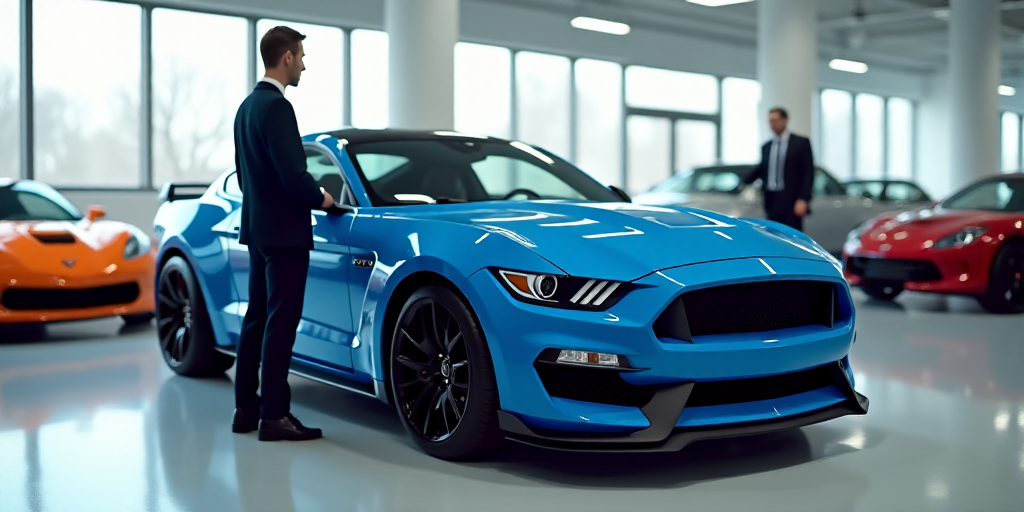Introduction
The proposed 50% tariff by Mexico on imported vehicles from China will significantly impact two major electric vehicle manufacturers: BYD and Tesla. This move is expected to affect the rapidly growing electric vehicle market in Mexico, while sparing traditional American automakers – General Motors, Ford, and Stellantis.
Tariff Details
The proposed tariff, announced on Wednesday, targets imported vehicles from countries without free trade agreements with Mexico, including South Korea, India, Indonesia, and Russia. However, the tariff’s practical effect will primarily be on electric vehicles manufactured in China and sold in Mexico, according to industry analysts.
Impact on Electric Vehicle Market
The tariff could reshape North America’s fastest-growing automotive market and slow down BYD’s meteoric rise in Mexico, analysts say. In the past year, Mexico increased tariffs on Chinese-made electric vehicles from 0% to 15%, and now to 50%, as stated by Eugenio Grandio, president of Electro Movilidad Asociación México (EMA).
Quote from Eugenio Grandio
“Without a doubt, this is a turning point. The 50% (tariff rate) is a very aggressive number,”
Source
The proposed tariff still needs approval from Mexico’s Congress, where the Morena party of President Claudia Sheinbaum holds a significant majority.
Protection for American Automakers
Although the proposed tariff appears broad, it actually safeguards traditional American automakers due to a 2003 decree. This regulation allows auto manufacturers with production plants in Mexico to import a percentage of tariff-free vehicles from countries like China, which lack free trade agreements with Mexico. Unlike Tesla and BYD, the three American automakers have production plants in Mexico.
Current Status of Tesla and BYD in Mexico
Tesla’s plans to establish operations in Mexico have stalled, with the company suspending construction of its northern factory last year due to interest rate pressure and global economic slowdown. The proposed factory was expected to create up to 6,000 local jobs.
Since mid-2023, all Tesla Model 3 and Model Y vehicles sold in Mexico have been manufactured at the company’s Shanghai plant, according to Salvador Rosas, vice president of the Tesla Owners Club in Mexico.
BYD announced plans in 2023 to build a factory in Mexico, but these were abandoned this year due to resistance from Mexican authorities fearing backlash from then-U.S. President Donald Trump over a Chinese plant authorization, potentially jeopardizing trade relations.
Despite the canceled plant, BYD has experienced explosive growth since entering the Mexican market at the end of 2023. The Chinese automaker claimed to have sold around 40,000 vehicles in Mexico in 2024, nearly half of all electric and plug-in hybrid vehicles sold in Mexico that year. BYD doubled its sales pace in Mexico by August 2025.
Reactions and Future Implications
China urged Mexico to “think twice” before implementing the tariffs, stating they would severely affect Mexico’s business environment. Flavio Volpe, president of the Canadian Automotive Parts Manufacturers Association, said the proposed tariff would be “very favorably” viewed by the Trump Administration as it would enable American automakers to compete more easily against BYD.
“The only growing market within North America is Mexico,” Volpe asserted.
Key Questions and Answers
- Who will be most affected by the proposed tariffs? BYD and Tesla, as they heavily rely on Chinese-manufactured vehicles for the Mexican market.
- What is the current status of Tesla and BYD in Mexico? Tesla’s factory plans have stalled, while BYD has seen significant growth despite canceled factory projects.
- How will the tariffs impact electric vehicle prices in Mexico? BYD’s low-cost strategy relies on Chinese labor and government subsidies; the tariff’s effect on their pricing remains unclear.
- What is China’s stance on Mexico’s proposed tariffs? China has urged Mexico to reconsider, warning of severe business environment consequences.






